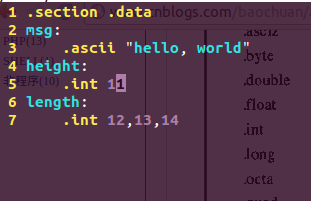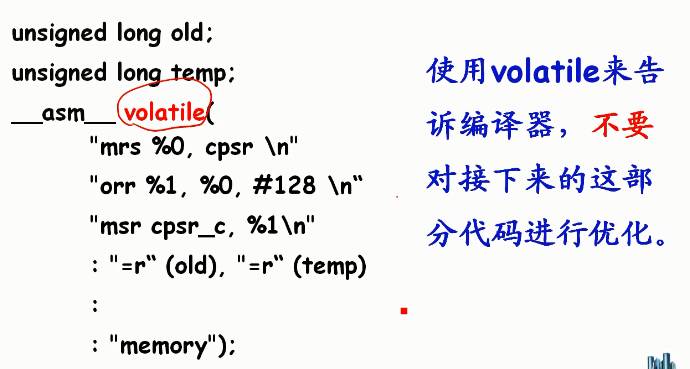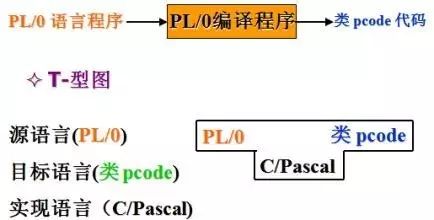
1. What are the advantages and disadvantages of using C language and assembly language in microcontroller development?
Answer: Assembly language is a symbolic language that uses mnemonic symbols to represent machine instructions, making it the closest language to machine code. Its main advantages are low resource usage and high program execution efficiency. However, assembly languages may differ between different CPUs, making them less portable.
C language is a structured high-level language. Its advantages include good readability and ease of portability, making it a widely used programming language. The downside is that it consumes more resources and has lower execution efficiency compared to assembly language.

For the currently widely used RISC architecture 8-bit MCUs, the internal ROM, RAM, and STACK resources are limited. When using C language, a single C instruction can compile into many machine codes, which can easily lead to issues like insufficient ROM space or stack overflow. Additionally, some microcontroller manufacturers may not provide C compilers. In contrast, assembly language has a one-to-one correspondence with machine code, making it clear what action each instruction performs. The size of the program and stack usage can be easily controlled, making debugging relatively straightforward. Therefore, we recommend using assembly language for microcontroller development.
If you are interested in C programming for microcontrollers, HOLTEK provides a C compiler for their microcontrollers, which can be downloaded for free from their website.
2. Can C++ be used for microcontroller programming, given that C and assembly are the main languages?
Answer: In microcontroller development, the main languages used are assembly and C; C++ is not commonly used.
3. Is it necessary to know C language for microcontroller development?
Answer: Assembly language is very close to machine code and is beneficial for understanding the various functional modules of microcontrollers, providing a solid foundation for beginners.

C language is a compiled programming language that combines features from various high-level languages and includes the functionalities of assembly language. It has a rich set of library functions, fast operation speed, high compilation efficiency, and good portability, allowing direct control over system hardware. C language is a structured programming language that supports top-down structured programming techniques widely used in current programming. Furthermore, C programs have a well-defined modular structure, facilitating modular programming methods in software development. Therefore, using C for programming has become a mainstream practice. Writing system software in C significantly shortens the development cycle and enhances software readability, making it easier to improve and expand, thus allowing for the development of larger and more complete systems.
In summary, using C for microcontroller programming is an inevitable trend in microcontroller development and application. Therefore, it is best for a microcontroller developer, who is well-rounded and involved in large-scale software system development, to master basic C programming.
4. When developing a complex project with a short timeline, should I use C or assembly?
Answer: For complex projects with tight deadlines, C can be used, provided that the developer is very familiar with the MCU system’s C language and compiler, particularly the data types and algorithms supported by the C compiler. Although C is the most common high-level language, different MCU manufacturers have varying C compiler systems, especially regarding operations of special functional modules. If these features are not understood, debugging can become troublesome and may ultimately be slower than using assembly.
5. Where can I find textbooks or materials on the 8088 and 196 microcontroller chips for teaching?
Answer: A commonly used textbook on this topic in universities is “IBM-PC Assembly Language Programming” published by Tsinghua University Press, which can be found online and in bookstores. Additionally, many other textbooks such as “Microcomputer Principles and Assembly Language Tutorial” (by Yang Yanshuang, Zhang Xiaodong, et al.) and “16/32 Bit Microcomputer Principles, Assembly Language, and Interface Technology” (by Zhong Xiaojie, Chen Tao, published by the Machinery Industry Press) can also be found in larger science and technology bookstores or ordered online.
6. Should beginners learn C or assembly first?
Answer: Beginners in microcontroller programming should start with assembly language. Assembly language is the closest to machine code, which helps deepen the beginner’s understanding of the various functional modules of microcontrollers, thus building a solid foundation.

7. As a third-year student at Wuhan University majoring in electronic science and technology, I have learned about electronic circuits, digital logic, assembly, interfaces, and C language, but I still feel confused and think I know nothing. What should I do?
Answer: The university experience is theoretical, and there are fewer practical opportunities, which often leads to a disconnect between theory and practice, a common issue in the domestic university education system. However, students should not be overly ambitious. Generally, from the third year, students start to encounter specialized courses, and electronics-related majors will offer courses on microcontroller applications with simple lab projects. Therefore, it is essential to take full advantage of lab opportunities and practice hands-on operations. Students can also read related electronics technology magazines and websites to learn from others’ development experiences, hardware design solutions, and software design experiences. If possible, participating in electronic design competitions can also be beneficial, as collaborating with 2-3 people on a complete system can provide valuable experience. During the senior year, students can choose relevant topics for their graduation projects to gain practical experience. Gaining experience is a gradual process that requires incremental learning.
8. How can students learn microcontrollers well?
Answer: To learn microcontrollers well, practice is crucial. Students may have fewer practical opportunities, but if possible, they should choose relevant topics for their internships to gain exposure to real projects. If microcontroller principles are a core subject, the school is likely to arrange ample practical lab opportunities. If capable, seeking part-time work related to microcontrollers can be very helpful. Furthermore, microcontroller development requires a combination of software and hardware knowledge, so one should not only focus on perfecting programming skills but also accumulate knowledge in hardware. Regularly visiting electronics forums, purchasing related magazines, and if possible, buying small components from electronics markets to build small systems can be beneficial.
9. How can I become an expert in microcontrollers?
Answer: To become an expert in microcontrollers, one should practice frequently and stay updated on the latest trends in microcontroller technology. Regularly visiting relevant websites can provide many useful resources.

1. Beautiful women don’t “chop hands”; the final sprint for voting is here!
2.Master AI; these algorithms excel at various tasks, which ones do you know?
3.Engineering tips from a 10-year FPGA development engineer!
4.If you don’t understand interrupts, don’t play with microcontrollers!
5.Master these 8 skills to successfully land one of the 4 most prestigious data science positions!
6.Analysis: Is the $1.3 billion acquisition proposal for Lattice Semiconductor merely a thirst for FPGA technology?

Disclaimer: This article is a network repost, and the copyright belongs to the original author. If there are any copyright issues, please contact us, and we will confirm the copyright based on the materials you provide and pay remuneration or delete the content.